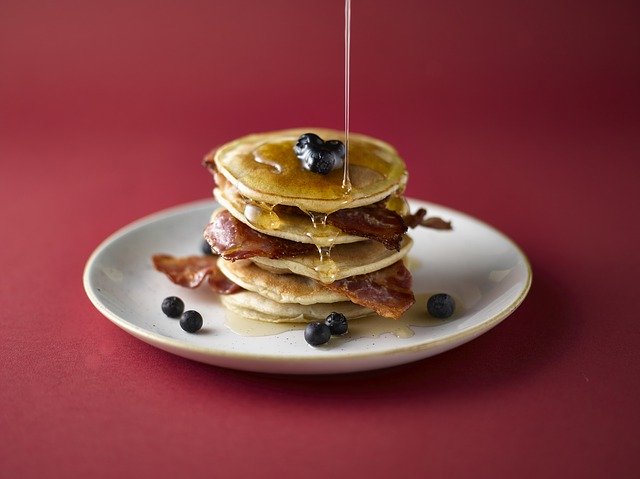There are many things that can affect your quality of sleep, from emotional distress to bodily illnesses like diabetes, kidney disease, or heartburn.
Whatever the cause, losing enough sleep can make you irritable and slow throughout the day. If you continue for a long time, your chances of heart attacks, strokes, neurological disorders and high blood pressure soar.
So sleeping is nothing to waste your time. Before heavy sleeping pills, the first place to look is your diet. Everyone knows that drinking caffeine before bed is a recipe for disaster, so skip coffee or tea. But you may not have realized that some healthy foods can also keep you awake all night.
What we eat before sleeping has a particular influence on our quality of sleep, but studies show that it also affects what we choose to eat the next day. A generally balanced diet is essential for maintaining a healthy sleep, but there are healthy foods that should be eaten earlier in the day, as well as less healthy indulgences that can cause your insomnia. Here are 7 possible plan culprits.
7. Citrus
In general, fruit is a healthy option and dietitians recommend taking it with every meal. But citrus fruits in particular could disrupt your sleep because they are very acidic. This can lead to heartburn or painful gastrointestinal reflux disease.
Citrus fruits are also high in sugar, which can give you a boost of energy when you need it least. Eat citrus fruits in the morning for breakfast and switch to fruits with low sugar and acid content throughout the day. Good fruits of the day include figs, raisins, grapes, apples, kiwi and papaya.
6. broccoli
Broccoli is a nutritious cruciferous vegetable. It should definitely be part of your diet. However, broccoli also contains a lot of fiber which can take a long time to digest.
In fact, all cruciferous vegetables are known to cause gas during digestion; other examples include Brussels sprouts, cabbage, kale, cauliflower and kale. Eating some of this before bed will probably keep you awake.
5. Celery
If your lack of sleep has something to do with jumping to pee several times a night, you can avoid eating celery before bed.
Celery contains a lot of water, so even if you stop drinking after dinner, eating celery can fill your bladder. The same goes for other foods with a high water content, such as watermelon, cucumber and iceberg lettuce.
4. meat
Meat, especially red meat, contains a lot of protein and fat. Therefore, digestion takes a long time and can keep you awake. Eating meat for dinner is fine, but it’s best to avoid it for a snack before bed.
If you’re having a really hard time putting it down every night, you might want to go further and stick to smaller portions of lean meat at dinner, such as turkey and chicken breast, or vegetarian sources of proteins, like yogurt and spinach. .
Any protein source will take longer to digest and may not be good before bedtime, but keep in mind that red meat is a particularly heavy source due to its fat content. Therefore, you are more likely to get indigestion or stomach cramps at bedtime.
3. Spicy foods
Spicy foods are contraindicated before bedtime, as they can cause stomach upset and heartburn. Heartburn tends to get worse when you lie down because stomach acid builds up around the esophagus. However, some studies indicate that spicy food before bedtime can increase the incidence of nightmares.
Sleeping poorly is not always a function of difficulty falling asleep. Waking up frequently throughout the night also deprives critical hours of rest.
Nightmares are simply dreams with negative emotions attached to them, but the response from a fight or flight from the body is much more likely to wake us up than a happy dream.
2. Dessert
A good treat after a long day of good eating behavior seems to be the perfect reward. Unfortunately, the last thing you want to do before bed is to raise your blood sugar.
Eating your dessert just before bedtime is likely to make you feel alert and energetic despite the late hour.
Especially avoid chocolate before bedtime, as it contains caffeine and sugar. But that’s not all. Chocolate contains a compound called theobromine, a stimulant that increases the heart rate and can contribute to insomnia.
1. Fast food
If we are at bedtime and we are still hungry, cravings for fast food can be triggered because the brain is looking for something to make you feel good as soon as possible. Unfortunately, fast food and other fatty snacks are difficult for the body to digest and can often cause heartburn.
The more fat in your food, the more acid and gastric gases it will produce. Pain obviously makes sleep particularly difficult. If it has already been delivered, try lying on your left side to reduce the amount of acid that builds up in your esophagus.
Despite all of the above tips, you don’t need to go to bed hungry for a good night’s sleep. In fact, being hungry at bedtime can also affect your sleep. The body still needs energy to fuel the processes that occur during rest, and hunger pains can also be painful.
The trick is to stick to a small snack instead of a meal-size portion. Good options include a tablespoon of peanut butter, a sliced apple, a scrambled egg, or a bowl of popcorn. Now go to bed!


